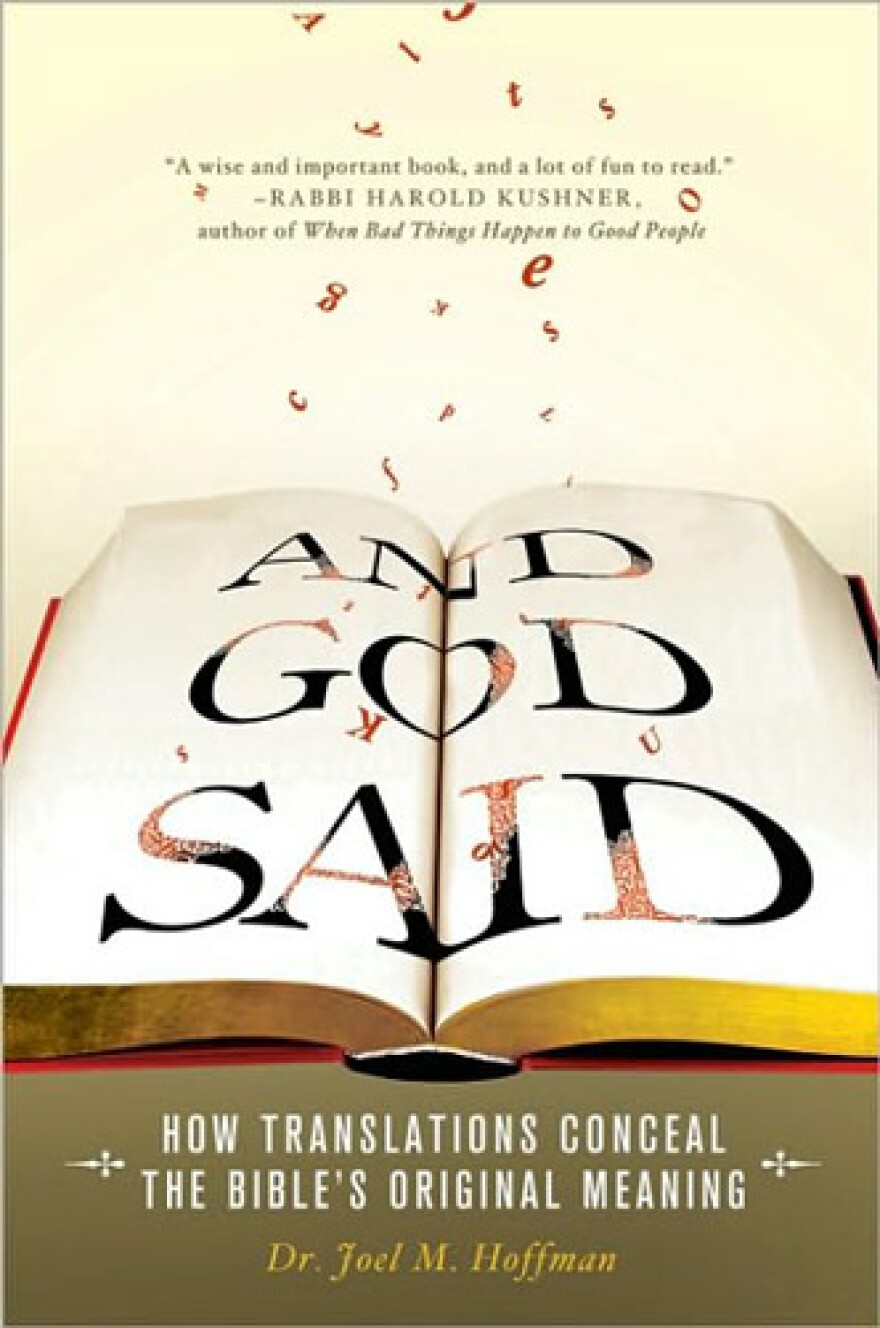By Melissa Benmark, WKAR News
http://stream.publicbroadcasting.net/production/mp3/wkar/local-wkar-989976.mp3
EAST LANSING, MI – Book reviewer Lev Raphael has been reading a book about biblical translation, and brought it in for our Under the Radar segment.
LEV RAPHAEL: It's called "And God Said," by Dr. Joel Hoffman, who's a Biblical scholar, and what Hoffman says is that, we don't really know what God said because most of the Bible translations we have are seriously defective. A lot of them are based on the King James Version, which, of course, has beautiful poetry, but one of the problems with that Bible is that, the people translating it, the team of translators, worked to make the whole thing sound the same.
So, it didn't matter which book of the Bible, what the genre was, whether it was a story, a chronicle, or a poem, everything sounds the same it's in the same voice. And he said that seriously distorts the different authorships of the Bible, the Hebrew Scriptures, but even worse, they made gross errors in translation.
MELISSA BENMARK: Now, is he talking about the Old and New Testaments, or the Hebrew scriptures?
RAPHAEL: Mostly the Hebrew Scriptures. But I think what he's talking about carries into the New Testaments as well. The book is very funny, and it's not often a guide to Bible translations comes out as a laugh riot, I think
BENMARK: Yeah, it doesn't sound like the first place you'd look.
RAPHAEL: But he is humorous and serious at the same time. And I think that's important, because, as a friend of mine says, you know, you can't be reverent unless you're irreverent. He thinks these texts matter. They are inspiring to millions of people, and have been, and have a lot to say. But we need to know what they really say before we take our inspiration.
BENMARK: So what do you think his motivation is in writing this, because there are people who would say, essentially, you know, don't mess with the word of God.
RAPHAEL: Well, they say that, and they're talking about the word of the King James Bible. These texts were not written in Shakespearian English. They were written in Hebrew, a bit of Aramaic, and Greek. And if you don't go back to try to figure out what the words mean then you're really lost, and he tries to give us a compass.
For instance, "The Lord is my Shepherd, I shall not want." Beautiful psalm, right? Many people know it, the Bible is quoted all the time. There're green pastures, you're lying down, there're still waters it's very peaceful, it's almost like a lullaby at the beginning. He says it's not at all like that. That, if you look at the word shepherd' as it's used across the Scriptures, what this psalm is really saying is, God is my hero, my valiant defender." He said it's hard to get all that in. Shepherd' doesn't just mean a guy hanging around with a bunch of sheep in this specific context. And I found that illuminating.
He does that all the way. He'll take a well-known verse, and he'll say, "Let's first look at context. How are these words used across the Bible, and what are the meanings?" In the Song of Songs, my sister, my love?' Well, that makes a lot of people uncomfortable. What does that mean, my sister?' Well, he looks at the uses of sister.' Sometimes it actually does mean sister,' sometimes it means daughter-in-law,' which is kind of interesting, but what he ultimately concludes from all the evidence, that from this context, and it's very important, sister' actually means my equal.' And if you read the Song of Songs, it really is a song about two lovers who are equals to each other.
I thought the book was really breathtakingly interesting, and I couldn't put it down. I read it straight through on a plane ride because I thought, this guy really has something to offer.' Whatever you think of the Bible, whether you read it as a literary text or a series of texts inspired by God, he has something important to say about it.

